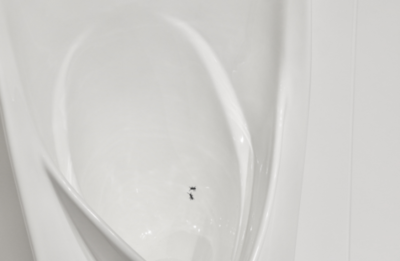
You finish in the bathroom, flush, and go about your day. But then you see them. A tiny, determined trail of ants, marching single-file toward the toilet bowl or congregating around the base. Your first reaction is likely one of disgust and frustration. You clean meticulously, so how are they getting in? And why there?
It’s easy to write it off as a random pest problem. But when ants appear with consistent, almost predictable regularity in the bathroom—and specifically in association with the toilet—it’s rarely a coincidence. This isn’t just an ant problem. This is a powerful, if unsettling, signal from your body. If ants keep appearing after you use the bathroom, your body is trying to tell you that your waste has become a rich, irresistible food source, and your internal metabolic environment has changed.
Ants are not random scavengers; they are master chemists and expert foragers. They are drawn to specific, potent chemical signals. Their persistent presence is a biological assay, indicating that what you are excreting is now loaded with something they find particularly desirable.
Decoding the Ants’ Message: The Metabolic Clues
There are two primary components in human waste that act as a powerful dinner bell for ants: glucose and urea.
- The Sweet Signal (Glycosuria): This is the most significant clue. Ants have a powerful sweet tooth. Under normal circumstances, your kidneys should reabsorb all the glucose (sugar) from your blood back into your body. However, if your blood sugar levels are consistently too high—a hallmark of undiagnosed or poorly managed diabetes—the kidneys become overwhelmed. They can’t reabsorb all the sugar, and it “spills over” into your urine, a condition called glycosuria. When you urinate, you are essentially laying down a trail of sugar water. To an ant, this is the equivalent of discovering a fountain of soda. Their persistent presence is a strong, external indicator of elevated blood sugar levels that you may be completely unaware of.
- The Salty-Signal (High Mineral Content): Ants also require salts and minerals. Urine that is highly concentrated with urea and other minerals can also be attractive. This can be a sign of dehydration, where your body is trying to excrete waste with as little water as possible, creating a more potent, mineral-rich solution.
What Your Body is Asking You to Do
This is one of those rare moments where a household pest problem should be taken as a serious, personal health warning. The ants are merely the messengers.
- Do Not Ignore This Sign: This is not the time for just laying down ant traps. While you should address the pest issue, the primary problem is not the ants in your bathroom; it’s the information they are bringing you about your body.
- Schedule a Doctor’s Appointment Promptly: This is the most important step. Explain the symptom to your doctor. They will understand the connection.
- Request a Simple Blood Test: A Hemoglobin A1c (HbA1c) test or a fasting blood glucose test can quickly and accurately determine if your blood sugar levels are in a healthy range. This is a simple, definitive way to check for pre-diabetes or diabetes.
- Increase Your Water Intake: If dehydration is a contributing factor, make a conscious effort to drink more water throughout the day to help dilute your urine.
Those ants are unwelcome guests, but they are also tiny, six-legged whistleblowers. They are providing you with an early, external warning system for a potentially serious internal metabolic shift. By listening to this bizarre but potent message, you can take proactive steps to manage your health, potentially catching a condition like diabetes in its early stages when it is most manageable. In this case, the ants aren’t just a nuisance; they are an alarm bell, and it would be wise to heed their call.